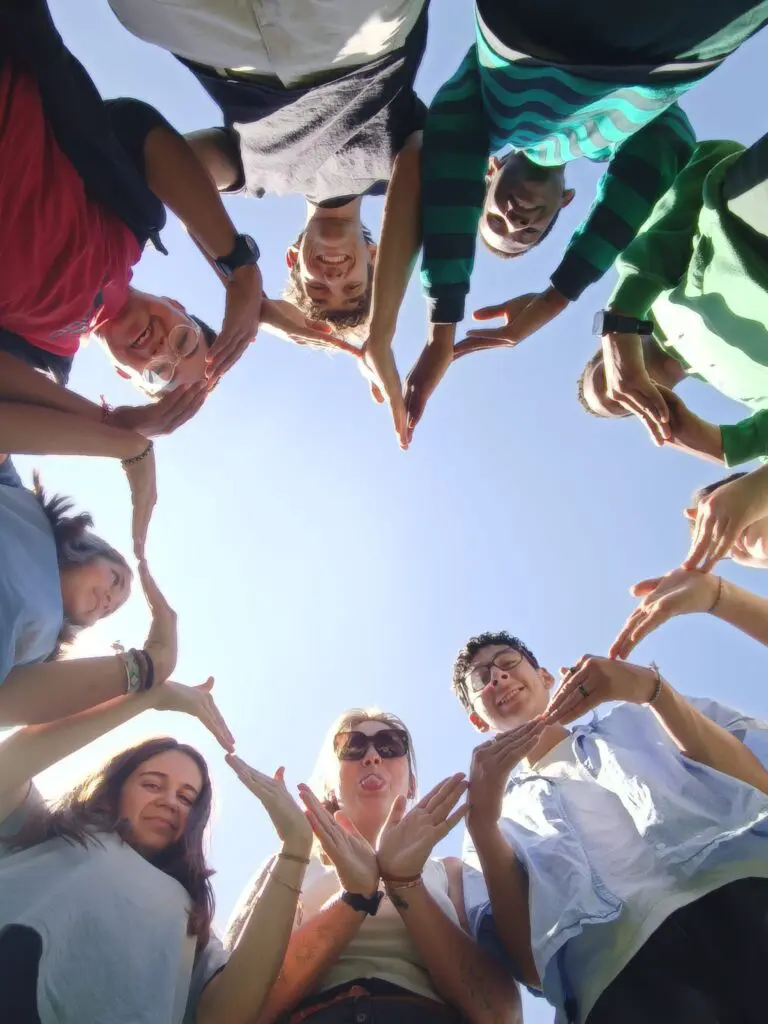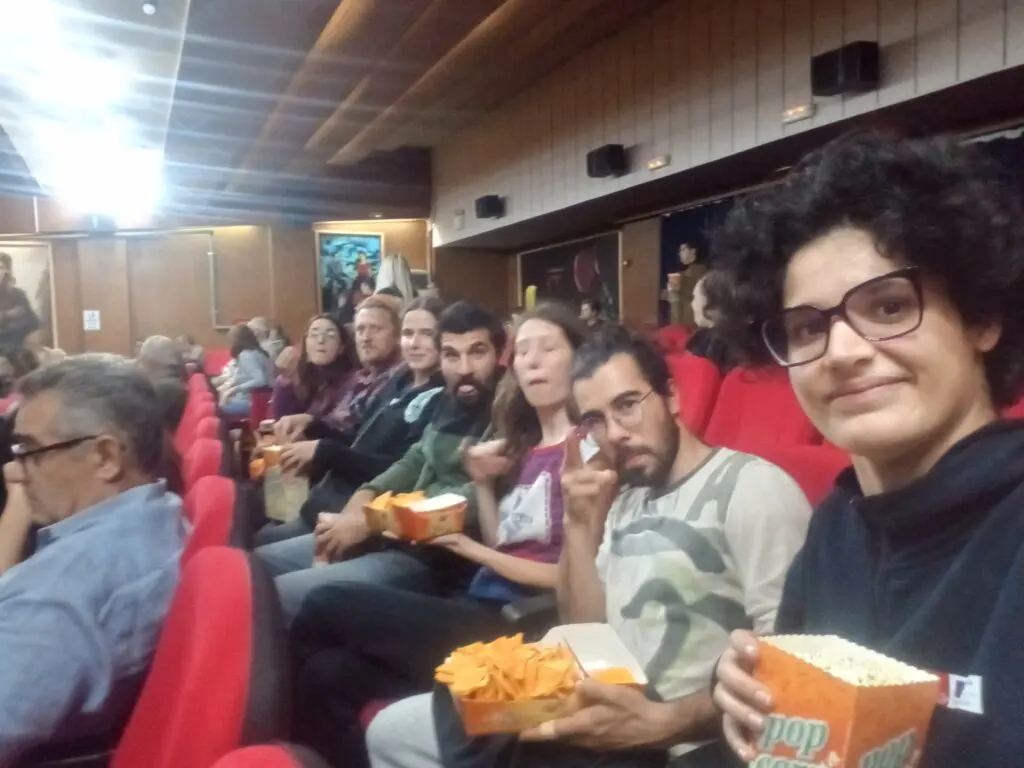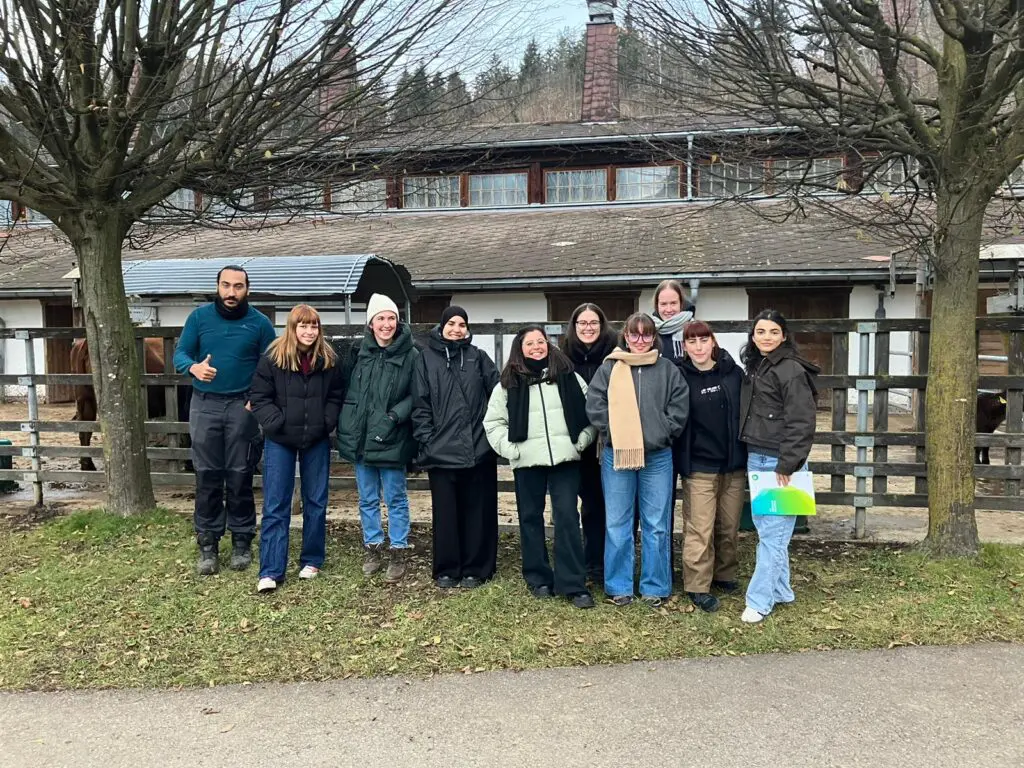Residential home for the Elderly “Brenzheim” in Wolfach (PIC number: 937072575)
Description of host organisation:
The Residential Home for the Elderly St. Raphael is an officially recognized retirement home. The responsible body of the instituion is the catholic social service association “Caritas-Seniorenzentrum St. Raphael e.V”. The retirment home offers 12 twin and 89 single room appartments for inpatient care and assisted living. Two places are reserved for short-term care, if required additional places can be offered. On workdays from 8:00 h to 16:00 h the Home offers in addition geriatric day care for senior citizens from the town of Neustadt and its surroundings. In a special department the clients get a suitable therapeutical assistance and support. Relatives and honorary collaborators have the opportunity to contribute to these activities. The sheltered housing estate for the elderly “Hangenwies”, situated not far from the Residential Home St. Raphael, offers autonomous living in particular appartments without abandoning the nursing system in case of necessity. The Residential Home St. Raphael provides social services and ensures emergency care. The technical service handles caretaking. The care of the elderly in the Residential Home for the Elderly St. Raphael is performed on a holistic basis, which consider latest findings in the domain of nursery, medical and social care. The individual needs of the elderly are taken into consideration by full collaboration of relatives, physicians and nursing staff. Thereby basic care, therapy and social work complement one another.
Project environment
The town of Titisee-Neustadt is situated in the southwest of Germany, in the Blck Forest, not far from the university town Freiburg in the border triangle between Germany, Switzerland and France. The twin town emerged from the territorial and administrative reform in 1971 by the fusion of the till then autonomous town of Neustadt and the villages of Titisee and Rudenberg. In 1973 and 1974 the community was completed by the villages of Langenordnach, Schwärzenbach and Waldau. The former village of Titisee is situated at an altitude between 780 and 1.192 meters above sea level at the northern bank of the lake Titisee, in the east of the Feldberg, the highest summit of the Black Forest. The settlement was first mentioned in 1111, from 1750 it’s indicated as “Titisee”, but it was only 1929 that the village obtained officially the name “Titisee”. The lake is situated at an altitude of 850 m, it has a surface area of 130 hectare and a maximum depth of 45 meters. It’s the largest natural lake of the Black Forest and attracts about 2 million tourist every year. The township of Neustadt is located five kilometres in the east of the lake Titisee. Neustadt was established in the 13th century. Since the 16th century there was a stage coach line from Freiburg via Neustadt to Donaueschingen. In former times the basic nourishment in the valleys around the lake Titisee was agriculture and stock farming, whilst around the lake black smithes, wainwrights and shingle makers worked as craftsmen. In the 18th century clock-making was established as Putting-out system. Today the time of big industrial settlements is over, the screw factory, the cloth mill and the big saw mill are closed as well as the famous clock factory. At present the community of Neustadt and it’s incorporated villages have altogether about 11.000 inhabitants.
Neustadt is hourly connected with the towns of Freiburg and Donaueschingen through the Hell Valley Railway. At Titisee branches off the Three-Lake-Railway to Seebrugg and the lake Schluchsee. On weekdays there is at hourly intervals between 5:30 h and 22:30 h (on Sunday from 07:00 h) a railway connection to the proximate towns of Freiburg and Donaueschingen (30 to 45 minutes). On the railway lines Basel-Freiburg and Freiburg Offenburg trains are running every hour or every 30 minutes during rush-hour traffic. Last returns to Neustadt from Freiburg 23:00 h. There is a well developed bus traffic system to touristic centres of the higher Black Forest. Volunteers get a monthly ticket which is valid for all public transport associations of the administrative district of Freiburg, on weekdays from 14:00 h, during weekend and school holidays the ticket is also valid in the neighbouring administrative districts of Lörrach, Offenburg, Villingen-Schwenningen and Waldshut-Tiengen.
Motivation
The hosting of an European Volunteer offers the chance for a multicultural approach to geriatric care in the Residential Home for the Elderly St. Raphael. Through contact with the volunteer the elderly and the staff members will get to know about another country and another culture, in return the volunteer will get to know german language and culture. Mutual learning will broaden the horizons of the elderly as well as the volunteers and staff members. The volunteer could enrich the geriatric care activities by new ideas and perspectives.To offer young people an interesting field of informal learning, where they can get involved and get to know main features of geriatric care.
Learning opportunities
Volunteers could find out about their abilities and potentialities. Volunteers could experience themselves as a part of a team, where all members are working on an equal footing on the same task. In the beginning volunteers will only assist the social work staff, later they will take on responsibility – as far as admitted by legal liabilities. Volunteers will gain technical and vocational skills in geriatric care. Volunteers will learn about social necessities of older people. The cooperation in a social project will afford volunteers a vocational orientation and a perspective for their professional life. Having sole responsibility for design and realisation of leisure facilities will enhance self-assurance and selfconfidence of volunteers. Participation in internal professional development activities will provide volunteers with specialised knowledge of the health care and nursery system. Integration in a foreign culture and the self-determined life of the local community will afford volunteers a personal orientation and increase the development of future perspectives. Integration in a foreign culture and the selfdetermined life of the local community will afford volunteers a personal orientation and increase the development of future perspectives.
Tasks for volunteers
The assignment of European Volunteers will not substitute a regular job in this project. The activities of volunteers should expand and deepen the existent geriatric care facilities. Volunteers should enrich the geriatric care activities with new ideas and perspectives.
Tasks:
Volunteers will be mainly employed in the social care department. Volunteers will work alongside qualified staff members as a supernumerary assistant and will be actively involved in the development of the day program of occupational therapy. The assignment of the volunteers will be fixed by prior consultation with staff members. Main tasks, volunteers can perform: • accompanied walkaways • support and assitance for wheelchair users • active participation in occupational therapy like doing artwork, singing, making music • preparation of events and assistance in performance Volunteers could develop their own ideas for new games, activities or stories into a personal project if they so wished – creative ideas are always welcome. The remaining of volunteers time will be spent in helping with other aspects of work at the centre – assisting with serving meals to the elderly, cleaning and preparing equipment, planning activities and courses. Volunteers are expected to accomplish a fulltime voluntary service of 35 hours per week. Overtime doing will be balanced by additional freetime. The volunteer will also be required to attend team meetings to report and co-ordinate resources. Like all staff members volunteers are expected to carry out some work of routine like
• preparing of group rooms for work
• cursory cleaning of group rooms at the end of work
• maintenance of working materials
• preparation of snacks
• assistance during meals At request of the volunteer and upon approval of the sending organisation and the National Agency it will be possible to work in other departments of the host organisation like housekeeping, kitchen, caretaking, reception or administration. In particular in the beginning the volunteer will pass through all departments of the rehabilitation centre to familiarize himself/herself with the structure and the functioning of the organisation (not longer than 3 weeks). After this introduction the volunteer will support mainly the work of activating day care of the residents.
Support:
The person in charge of training in the Residential Home for the Elderly “St Raphael” will act as a tutor for the volunteer. She will support the volunteer from the first contact to the delivery of the final report. She will prepare the application together with the sending organisation and the volunteer. She will take care for practical preparations in the host organisation and prepare the arrival of the volunteer. During the voluntary service she will support the volunteer in all administrative affairs (announcement at the registry office, applying for residence permit, opening an account with the bank, insurance affairs etc.). She will take care about the integration of the volunteer into the hosting project, will acquaint her/him with the regulations. In case of difficulties and problems she will act as the first and leading contact person. Regularly she will hold evaluation meetings with the volunteer. The hosting organisation offers the candidates to spend 4 or 5 days in an preparatory visit on-site so they become familiar with the projects program and understand their responsibilities. For this preparatory visit, the hosting organisation pays food, lodging and an allowance of 100 Euros to cover travel expenses. After this visit the candidates can decide without any obligation whether they want to participate in the project. The hosting organisation will send the volunteer to the on-arrival training and the obligatory mid-termmeeting organised by the National Agency. The volunteer can take part in a language training for European Volunteers arranged by the coordinating organisation. The aim of the language training is the command of oral every day speech with a special focus on the terminology of social care. Through language training volunteers should be enabled to manage typical situations of daily life they will be confronted with during their voluntary service. The language training will be carried out by qualified teacher for German as a foreign language. The language training will take place one day per week in the afternoon in a classroom in Neustadt or in Freiburg. If there are several levels, the teacher will make a grading test. A maximum of three hours will be allowed to voluntary activities. Apart from language learning the language training serves as a weekly meeting for European Volunteers from several EVS projects situated in the region. Every month a day of studies will be organised vor the volunteers, where the volunteers can seek advise for their choice of occupations in future, meet counselors from universities and colleges, visit the European Parliament in Strasbourg, go on excursions, or take part in cultural events. The content of this program will be discussed by the group and participation is left up to the volunteers
Profile of volunteers
Volunteers should have a basic knowledge of German and have an interest in, and willingness to work with older and partly gerontopsychiatric disordered people. It’s necessary for volunteers to be sociable and outgoing, to have enthusiasm, and to be open to foreign cultures. They should be able to interact well with groups of people. An enthusiastic, responsible and flexible attitude towards the work is important. Volunteers should be willing to learn new skills and share own experince with others, be able to work as a team and contribute to the process and be open to new ideas and be flexible to work in a variety of settings. Language learning should not be the first or only motivation to make a voluntary service in this project. Since the project is situated in a small town, the volunteer must be fully aware of the geographical and social implication of the projects location.
How to apply
Building Bridges Association members will have preference, please enroll to the association here.
For the selection of the volunteers we will need:
– Europass CV with picture (made in the last month)
– Motivational letter, writing that your sending organisation will be “Building Bridges”. We ask all candidates to send a specific letter of motivation – why they want to volunteer with us rather than just a general EVS one.
Remember to write in the motivation letter that your sending institution is “Asociación Building Bridges”.
All documents written in english you can attach below with subject “EVS Germany Ekkehard St Raphael. YOUR NAME. YOUR SURNAME» to asociacionbbARROBAgmail.com





Add a comment